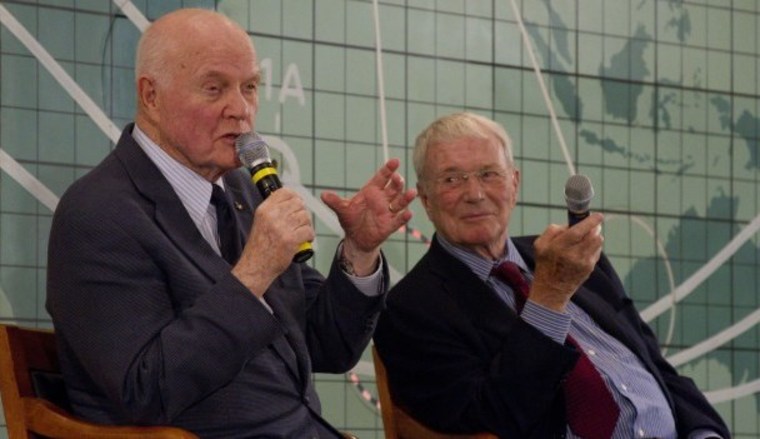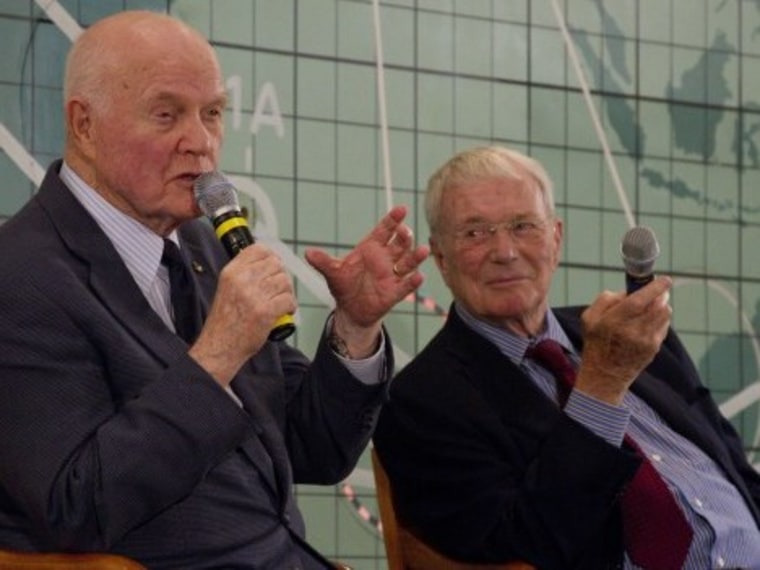
Scott Carpenter, the Mercury astronaut who wished "Godspeed" to John Glenn in 1962 and followed in his footsteps months later, suffered a stroke this week in Colorado, family friends told NBC News.
The 88-year-old former spaceflier was stricken three days ago in Vail, Colo., where he has a home, and is being hospitalized in Denver, the sources told NBC News' Cape Canaveral correspondent, Jay Barbree.
He reportedly experienced some paralysis and is having trouble speaking, but is expected to make a full recovery.
Carpenter and Glenn, 92, are the last living members of the Mercury 7, NASA's first group of astronauts. Carpenter was the backup for the Friendship 7 mission on Feb. 20, 1962, which made Glenn the first American in Earth orbit. It was Carpenter who radioed, "Godspeed, John Glenn," from NASA's Cape Canaveral blockhouse as his colleague headed for history.
Carpenter became the second American in orbit on May 24, 1962, when he piloted his Aurora 7 capsule through three orbits. During that flight, he became the first American to eat solid food in space (in the form of energy snacks called "Space Food Sticks")
Aurora 7 was Carpenter's only spaceflight: He was removed from flight status after breaking his arm in a motorcycle accident in 1964, and left NASA in 1967.
In addition to his astronaut experience, the former naval aviator participated in the Navy's SeaLab underwater training program as an aquanaut.
After his retirement from the Navy in 1969, Carpenter took on a number of business ventures and served as a movie consultant in the fields of spaceflight, oceanography and the environment. He wrote two novels as well as a memoir titled "For Spacious Skies."
More about space history:
- John Glenn reunites with his old launch team
- Going beyond 'Godspeed': Scott Carpenter remembers
- Flash timeline: Glory Days on the Final Frontier
Alan Boyle is NBCNews.com's science editor. Connect with the Cosmic Log community by "liking" the NBC News Science Facebook page, following @b0yle on Twitter and adding +Alan Boyle to your Google+ circles. To keep up with NBCNews.com's stories about science and space, sign up for the Tech & Science newsletter, delivered to your email in-box every weekday. You can also check out "The Case for Pluto," my book about the controversial dwarf planet and the search for new worlds.
